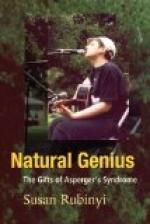THE RETURN OF THE GODDESS.
BY BAYARD TAYLOR.
Not as in youth, with steps
outspeeding morn,
And cheeks all
bright from rapture of the way,
But in strange mood, half
cheerful, half forlorn,
She
comes to me to-day.
Does she forget the trysts
we used to keep,
When dead leaves
rustled on autumnal ground?
Or the lone garret, whence
she banished sleep
With
threats of silver sound?
Does she forget how shone
the happy eyes
When they beheld
her?—how the eager tongue
Plied its swift oar through
wave-like harmonies,
To
reach her where she sung?
How at her sacred feet I cast
me down?
How she upraised
me to her bosom fair,
And from her garland shred
the first light crown
That
ever pressed my hair?
Though dust is on the leaves,
her breath will bring
Their freshness
back: why lingers she so long?
The pulseless air is waiting
for her wing,
Dumb
with unuttered song.
If tender doubt delay her
on the road,
Oh let her haste,
to find that doubt belied!
If shame for love unworthily
bestowed,
That
shame shall melt in pride.
If she but smile, the crystal
calm will break
In music, sweeter
than it ever gave,
As when a breeze breathes
o’er some sleeping lake
And
laughs in every wave.
The ripples of awakened song
shall die
Kissing her feet,
and woo her not in vain,
Until, as once, upon her breast
I lie,
Pardoned
and loved again.
ON POPULAR KNOWLEDGE.
BY GEORGE S. HILLARD.
Against all institutions for the diffusion of knowledge among the community, an objection is often urged that they can teach nothing thoroughly, but only superficially, and that modest ignorance is better than presumptuous half-knowledge. How frequently is it said that “a little learning is a dangerous thing.” This celebrated line is a striking instance of the vitality which may be given to what is at least a very doubtful proposition by throwing it into a pointed form. If anything be a good at all, it is a good precisely in proportion to the extent in which it is possessed or enjoyed. A great deal of it is better than a little, but a little is better than none. No one says or thinks that a little conscience, or a little wisdom, or a little faith, or a little charity is a dangerous thing. Why then is a little learning dangerous? Alas, it is not the little learning, but the much ignorance which it supposes, that is dangerous!




